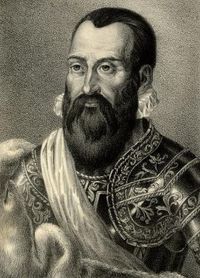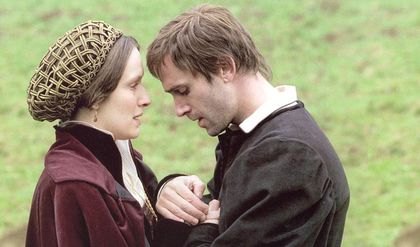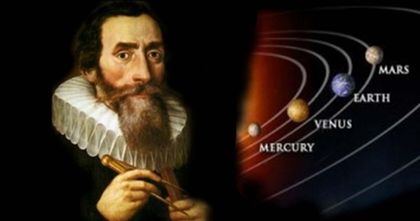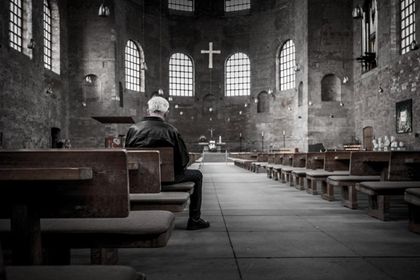We are facing massive challenges in Europe and America with rapidly spreading unbelief and a weak Church. But what God did then in changing the direction of Europe, He can do again.
 A view of Prague, in the Czech Republic. / Lee Key (Unsplash, CC)
A view of Prague, in the Czech Republic. / Lee Key (Unsplash, CC)
Read part I and part II of this article.
13. The Reformation provided a foundation for democracy and civil liberty.
The Reformation changed history as it impacted government, law and politics. What I call the Reformation’s “Jekyll and Hyde, creation/depravity” view of human beings is the theological foundation for the Reformation’s impact on government, law, liberty and politics.
- Creation. We are created by God. So we deserve freedom.
- Depravity. We are sinful and no one can’t be trusted with umlimited power over others.
These two doctrines were the key Reformation principles which provided the foundation for rule of law which protected civil liberty and individual freedom.
Lithuania provides one of the most amazing examples of the Reformation’s impact on politics. In the 1500’s, Lithuania was known as the Grand Duchy of Lithuania. It was one of the largest nations in Europe, stretching from the Baltic Sea to the Black Sea, taking in large parts of Ukraine and Poland, part of Russia and all of modern Lithuania and Belarus.
Amazingly, the Protestant Reformation rapidly swept across Lithuania. By 1569 all but two members of their Senate were Protestants. They soon began setting up democratic forms of government.
One member of the Lithuanian Senate, Andrei Wolan, was a Calvinist preacher. He led the way in articulating these political principles of the Reformation. The Statutes of 1588 are the the most comprehensive legal code in Europe in 16th century and included many of the central principles of a democratic government.
- Rule of law: “We are slaves to law so we could be free.“
- Separation of judicial and executive powers.
- Freedom of conscience.
- Equal protection under the law.
- Presumption of innocence.
This covenant provided a foundation upon which America’s founding fathers built a new nation two hundred years later. As an American I am keenly aware that without the Reformation, the USA would not exist today. The Reformation provided the theological foundation for our political system.
14. The Reformation brought economic development with free enterprise
All across northern Europe, economic lift resulted from Reformation. One of the prime examples is once again found in Lithuania (you knew I would bring up Lithuania again, didn’t you).
 Grand Duchy of Lithuania.
Grand Duchy of Lithuania.In 1557, in the Grand Duchy of Lithuania, one of the newly converted Protestant nobles, Radziwill the Black, realized that his new-found Protestant faith meant he should treat his peasants differently. So he gave the peasants their own land—52 acres—their own private property.
Suddenly, these peasants had their own land and they were responsible for it and would reap the benefits of hard work. Quickly, this led to an agricultural boom. Now instead of barely surviving, the region began exporting wheat and barley.
Over time many became craftsmen and artisans. Towns and villages grew. The governor of Minsk wrote an article explaining why free market worked. Theology makes a difference.
In this same way, the Reformation brought prosperity to many parts of Protestant Europe.
15. The Reformation made marriage and the family central to the culture
The medieval Catholic Church generally viewed celibacy as more spiritual than marriage. Many Catholic leaders believed sexual intimacy in marriage was unspiritual, even though marriage was recognized as a sacrament.
But the overall emphasis was that the really godly people should be celibate—just one more facet of of their sacred/secular division of the world.
But on June 13, 1525, 41-year-old Luther, a former Augustinian monk, married Katerina, a 26-yr-old former nun. Their action proclaimed for all the world that marriage is holy and honorable. Their marriage union has provided a model for Protestants on the holiness of marriage and family for the past 500 years.

It is still true that some are called to celibacy, as Scriptures says, but many are called to marriage as a way to serve God and others. So Protestantism brought marriage and the family to a place of central importance in the culture.
16. The Reformation lifted the status of women
The Reformation didn’t overhaul the patriarchal society nor did it cure the Church of male chauvinism, but at least it made progress in adopting a more biblical view of women and their role in society and the Church.
Many women were active in promoting and strengthening the Reformation. The Reformers insisted that women should read the Bible. Women and girls should receive an education. Women sang in church for first time since Early Church.
Luther’s respect for women provided a good model for men and church leaders to follow. He publicly praised his wife, Katerina. He definitely did not view the woman as merely the property of the husband.
He said,“Wives should have as much pleasure in marriage as man.” Most amazingly, he made Katerina his beneficiary in his will. He left all his property to his wife which was unheard of, even scandalous.
17. Scientific exploration exploded after the Reformation
In stark contrast to the anti-scientific stance of the medieval Catholic Church, Luther advocated learning about creation. “We can begin to recognize His wonderful works and wonders also in the flowers when we ponder His might and His goodness….In His creation we recognize the power of His Word. By His Word everything came into being. This power is evident even in a peach stone. No matter how hard its shell, in due season it is forced open by a very soft kernel inside it.”
Any time the subject of science and religion comes up, the case of the Catholic Church forcing the Catholic scientist Galileo to recant for supporting Copernicus’s theory is cited.
Copernicus who was a Catholic in Poland, discovered that the earth revolves around the sun. His discovery is called the Copernican revolution. Because Galileo agreed with Copernicus, he was charged with heresy, because Copernicus’s book was forbidden by the Catholic Church.
But Protestants supported Copernicus. What a contrast. (Theology matters.)
- It was a Lutheran prince, Duke Albrecht of Prussia, who paid for the publication of Copernicus’ work.
- Osiander, a Lutheran theologian, “arranged for the printing.”
- Rhaeticus, a Lutheran mathematician and professor at Wittenberg with Luther, “supervised the printing.”
- Melanchthon publicly declared his love and admiration for Copernicus.
- Lutheran scholars and universities consistently promoted Copernicus.
John Calvin encouraged scientific study. He famously said that the whole world is a “theater of the glory of God.” One of his themes was that we should “take a pious delight in the clear and manifest works of God” in creation.

The great astronomers Tycho Brahe (1546-1601) and Johann Kepler (1571-1630) were Lutherans. Kepler said we should be “engaged constantly in the delightful consideration of the divine works that shine forth everywhere in the structure of the world.”
He thanked God for the privilege of studying the world and seeing “the beauty in Thy work of creation; I exult in the works of Thy hands.”
A long list of early scientists were Protestants:
- Johann Fabricus (1587-1616), the first to observe “sunspots and the rotation of the sun” was a Lutheran layman.
- Samuel Dorffel (1643-1688), the first to demonstrate “the parabolic orbit of comets,” was a Lutheran pastor.
- Andreas Libavius (1550-1616), a Lutheran, wrote the first chemistry textbook. He said, “It is absurd not to posit God as present in everything.”
- Robert Boyle (1627-1691), a founder of modern chemistry, was a Protestant. And the list goes on.
What Next?
Now you see why earlier, I said the Protestant Reformation not only saved the Church, but it changed the world. Theology makes a difference—not just in church, but in economics, politics, law, work, and family.
We are facing massive challenges in Europe and America with rapidly spreading unbelief and a weak Church. But what God did then in changing the direction of Europe, He can do again.
When the outlook is bleak and the situation seems hopeless, remember what God has done in the past. Remember what he did through these ordinary men and women we call the Reformers.

We need a new Reformation in our day, both in Europe and in America.
- The spiritual darkness of Europe and America today calls for a new Reformation—a Reformation which spreads the Gospel as we re-evangelize our nations.
- The weakness of the Church across Europe and America today calls for a new Reformation—a Reformation which revitalizes and strengthens the biblical Church.
The whole purpose of the European Leadership Forum (ELF) is to strengthen the biblical church and evangelize Europe as we unite, mentor and resource European leaders. And American believers need to be strengthening the biblical church and evangelizing our nation as well.
So in closing, what does “Reformation” mean for me and for you and for our churches and ministries today?
Eight Lessons from the Reformation
1. Apply the Gospel to the whole of life and culture
Christ is not just Lord of our hearts and our Bible reading, our praying, and our church-going. The Reformation showed how Christ’s Lordship impacts all of life: education, the sciences, commerce, government, law, entertainment, the arts—everything.
One of my heroes, a Dutch pastor and political leader, Abraham Kuyper declared, “There is not one square inch of the entire creation about which Jesus Christ does not cry out, ‘This is mine!’”
What issues are you facing in your family, your community, your city, your nation? The Lordship of Christ speaks to every one of these issues. As followers of Jesus, we need to study and explore and understand how the Lordship of Christ applies to every aspect of life. We must connect the Gospel with the pressing issues of our day.
2. Tell others about Jesus.
The Reformation was a missional movement. But evangelism is not very popular in a pluralistic culture where everyone’s truth is as valid as the next person’s truth, where we’re not sure whether there really is a hell and a heaven.
Reformation 500 is a splendid opportunity to explain why we are Bible Christians, why we follow Jesus like we do. As one Reformation 500 motto says, “It’s still all about Jesus.” The Reformation is all about the Good News.
3. Reaffirm that Jesus is the only way—Solus Christus.
According to a Ligonier Ministries recent poll, when asked, “By the good deeds that I do, I partly contribute to earning my place in heaven,” 36% of evangelicals agreed. Clearly many evangelicals no longer really believe in justification by faith.
There’s a popular saying today in America, “Love wins.” Sounds great, doesn’t it? Who could argue with that? The phrase has been made popular recently by Rob Bell, a former evangelical who now denies the full inspiration of the Bible and many of the clear teachings of the Bible. It is code for “ultimately everyone will be saved.”
But the Gospel declares that Jesus is the only way to salvation. No one comes to the Father except through confessing their sins to Jesus and following Him. Solus Christus.
4. Reaffirm the ministry of every believer
Unfortunately, many pastors and ministry leaders still insist that their work is more spiritual than what the business person, the farmer, the lawyer, the housewife, the IT guy, the cook or the politician does.
They give the impression, if you really want to serve God, then you need to go into “the ministry” and become a pastor, or some other kind of “full-time Christian worker.”
But this is a denial of the biblical teaching of the priesthood of all believers. Ministry leaders need to declare to their fellow-believers, “We are all in the ministry and your workplace is a primary place where you can bring glory to God.
We need every believer to embrace their ministry through their work and fulfilling their daily duties as part of the priesthood of all believers. Every believer is in “full-time Christian service.”
5. Reaffirm our identity as followers of Jesus.
Pope Francis with his grandfatherly smile is telling evangelicals and charismatics, “the miracle of unity has begun. Come on, we are brothers.” But there is a problem. The Roman Catholic
Church still teaches what the Protestant Reformers called “salvation by works.” Even though there are many born-again Catholics, the Catholic Church still teaches the same unbiblical doctrine of salvation which sparked the Reformation.
- Since 2015, Pope Francis has been issuing special indulgences. Thankfully, he’s not selling them, but he is promising that by certain actions, such as walking through a certain door at some Catholic churches, you can receive a certain number of years out of purgatory. Sounds like salvation by works to me.
- One of the central teachings of the Catholic Church is that it is the mediator between God and man and that the Church distributes God’s grace by means of its sacraments.
- The Catholic Church still teaches that we go to purgatory when we die.
- Francis is a big advocate, as was John Paul II, of worshiping and praying to Mary as the co-mediatrix with Christ and that if we pray to Mary, she can dispense salvation to us.
Actually, there are more reasons for a Protestant Reformation today than there were in 1517, because the Roman Catholic Church has added still more unbiblical teachings to its doctrine since 1517.
- The immaculate conception of Mary, added in 1854.
- The infallibility of the pope, added in 1870.
- Mary’s body was taken up into heaven (bodily assumption), added in 1950.
The good news is that today there are undoubtedly more born-again Catholics than ever before in history.
As the leaders of the Roman Catholic Church become increasingly insistent that the Reformation no longer matters, it will become increasingly necessary for followers of Jesus—both Catholic and Protestant—to stand up and declare, with grace and love, that justification by faith and not by works still matters. Sola Scriptura still matters. Solus Christus still matters.
This is not anti-Catholic or anti-Orthodox. It’s simply pro-Jesus and pro-Bible. When the Word of God clearly says we are saved by grace through faith alone, we believe that settles the issue.
The Reformation is not over, because…
- Truth matters.
- God’s Word matters.
- Salvation by faith matters.
It is time for born-again Catholics and born-again Protestants to stand up and declare their allegiance is to Christ and His Word.
6. Ground our lives on the inerrant Word of God—Sola Scriptura
The pressure is on for evangelicals to compromise the authority of the Bible on prickly issues like hell, salvation, homosexuality, and other gender issues. But a solid intellectual case can be made that the Bible is trustworthy, it is authoritative.
The Reformers were men and women of the Bible. They read it, they studied it, they memorized it, they applied it to their lives—at the risk of losing everything.
7. Soak our lives in prayer
The Reformers were men and women of fervent prayer. John Knox, the great Reformer of Scotland cried out daily, “Give me Scotland or I die.” And amazingly, Scotland was transformed.
His prayer was answered in his lifetime—against all odds. Are we interceding for our nation? Let us intercede, “Give me Europe or I die. Give me America or I die.”
8. Keep focused on Christ
My favorite biography of Luther describes him as “a man aflame with God.” Luther was definitely flawed—painfully so. But God used him mightily, I believe largely because he kept focused on Christ.
Standing for Christ will require courage. It would have been easy for Luther and the other Reformers to say, “The Bible doesn’t agree exactly with what the Catholic Church says, but it could cost me my job, maybe even my life if I make an issue of it. So I’ll just keep quiet and be nice.”
No, the Reformers risked everything for Christ and their convictions.
As we face a militant atheism, the intolerance of a pluralistic society, and a smiling Pope inviting us to just forget about our differences,…
We must have courage. This will be a costly courage. We will be called intolerant, unloving, and divisive.
But truth matters. If we love God and we love people, then our first duty is to speak truth, lovingly to be sure, but firmly, with courage, imploring them to hear God’s voice through His Word.
So can the church of Europe be renewed? Can the darkest continent in the world be evangelized?
We acknowledge our weakness and inadequacy. But we know God saved Europe before and He did it through ordinary men and women with their relentless focus on seeking Him, on speaking and spreading truth, through their bold courage and conviction, their fervent prayerfulness, and their allegiance to Christ as the Lord of all things.
We admire the Reformers, but this is our hour, this is our challenge. And the Living God has put us in positions of responsibility.
Let us be loyal to Christ. Let us put Him first. Let us cry out interceding for our nations and our churches. Let us pray and lead and teach and witness with integrity and excellence, knowing it is the Lord God we are serving. He will fill us with His Spirit. He will empower us, he will lead us.
Daryl McCarthy serves as Vice President of Academic Programs and Strategy with Forum of Christian Leaders (FOCL).
NOTES
Reformation Resources
Books
Bainton, Roland H. Here I Stand; a Life of Martin Luther. New York,: Abingdon Press, 1950. My favorite biography of Luther.
Metaxes, Eric. Martin Luther: The Man Who Rediscovered God and Changed the World. New York: Viking Press, 2017. (I don’t normally recommend books I haven’t read. But this was just released. I like Metaxes’ writing, so it should be good.)
Reeves, Michael, and Mark Dever. The Unquenchable Flame : Discovering the Heart of the Reformation. Nashville, Tenn.: B & H Academic, 2010.
Reeves, Michael. Why the Reformation Still Matters. Wheaton, Illinois: Crossway, 2016.
Sproul, R. C., and Stephen J. Nichols. The Legacy of Luther. Orlando, Florida: Reformation Trust, 2016
Children’s Books
Leigh, Susan K., and Dave Hill. Luther, the Graphic Novel: Echoes of the Hammer. St. Louis, MO: Concordia Pub. House, 2011. This is an excellent re-telling of the story of the Reformation for children. (I gave it to Jack, my oldest grandson, for Christmas last year.)
Magazines
- “Luther Leads the Way., Christian History Magazine Issue 115. Excellent articles on Luther and the Reformation. Available here . $5.00.
- “The People’s Reformation,” Christian History Magazine, Issue 118. Excellent articles. Available here . $5.00.
- “Calvin, Councils and Confessions,” Christian History Magazine, 120. Available here. $5.00.
- “The Catholic Reformation,” Christian History Magazine, 122, Available here. $5.00.
Videos
- “Martin Luther,” Classic 1953 black-and-white movie on Luther’s life starring Niall MacGinnis. 105 minutes. This is the movie I have seen more than any other. I still love it.
- “Luther,” 2003 movie starring Joseph Fiennes. 123 minutes. This is the best modern movie about Luther.

Las opiniones vertidas por nuestros colaboradores se realizan a nivel personal, pudiendo coincidir o no con la postura de la dirección de Protestante Digital.
Si quieres comentar o